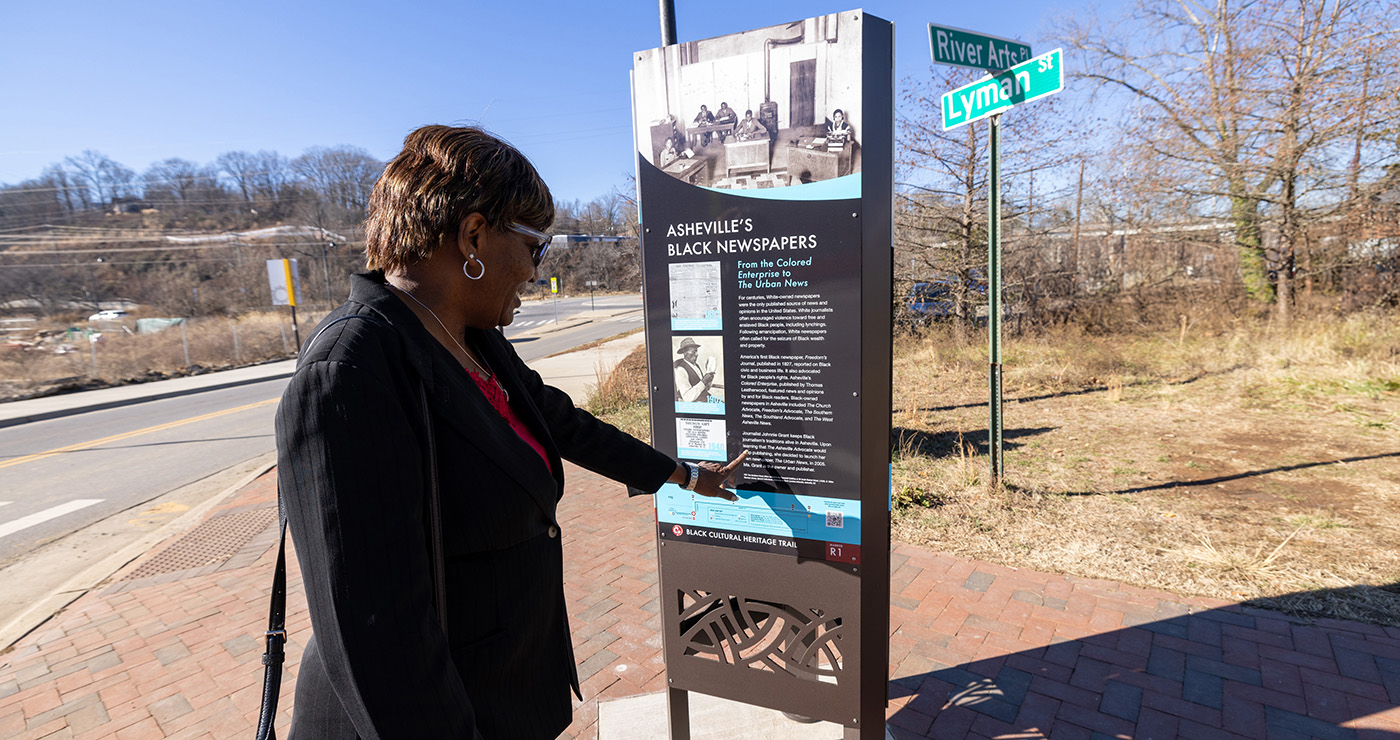
Exploring the history of Asheville’s Black community on the Asheville Black Cultural Heritage Trail
ASHEVILLE, NC — After 13 years of work, the trail is open to the public to learn about the legacy of Black Asheville.
The Asheville Black Cultural Heritage Trail is now open, allowing the public to explore the history and resilience of Asheville’s Black community. The trail was officially unveiled on Friday, Dec. 15. The East End/Valley Street Neighborhood Association first proposed the idea of the trail in community meetings in 2010, with local nonprofit River Front Development Group leading the effort — and through grant funding from the Buncombe County Tourism Development Authority and collaboration with Explore Asheville staff, the trail began to take shape. After years of work, recommendations from the trail’s advisory committee, and community input, trail-goers can now take a self-guided tour to learn about the often underrepresented people, landmarks, and achievements of Black Asheville.
Catherine Mitchell of River Front Development Group has been a driving force behind the project since the idea first came to light. At the ceremony unveiling the trail, Mitchell shared that the trail encapsulates “hundreds of stories” documenting the history of the Black community’s involvement in church life, civic affairs and engagement, and more.
Walking the trail
The trail spans Asheville’s Downtown, Southside, and River Area neighborhoods and includes 14 stops with 20 informational panels. The markers amplify the stories of less recognized figures and accomplishments of Asheville’s Black community, giving insight into topics including Asheville’s Black newspapers and Stephens-Lee High School’s Asheville Student Committee on Racial Equality. In the bottom right corner of the markers, you’ll find QR codes leading to additional stories, photos, videos, and first-hand oral histories.
As you make your way through the self-guided trail, emblems of the Sankofa bird are cemented into the sidewalk, leading you forward. Sankofa, a Twi word from the Akan people of Ghana, comes from the literal translation of an Akan proverb that says, “It is not taboo to go back for what you forgot (or left behind)” — inviting participants on the trail to recognize the injustices of the past to create a more progressive future.
On the back of several markers, you’ll find photos of azaleas, paying homage to Sylvester Owens — a pivotal figure in developing the Biltmore Estate’s azalea gardens.
“We need to know our history, and folks, if we don’t, history will repeat itself. And the only thing is, each time it repeats itself, it can get worse if we don’t know what we’ve been through,” shared Buncombe County Commissioner Al Whitesides on a tour of the Downtown section of the trail. To find maps identifying the first stop on each section of the trail and additional resources to view while navigating, head to the Asheville Black Cultural Heritage Trail’s website.
Excerpts AVL Today – Grace Powers,


